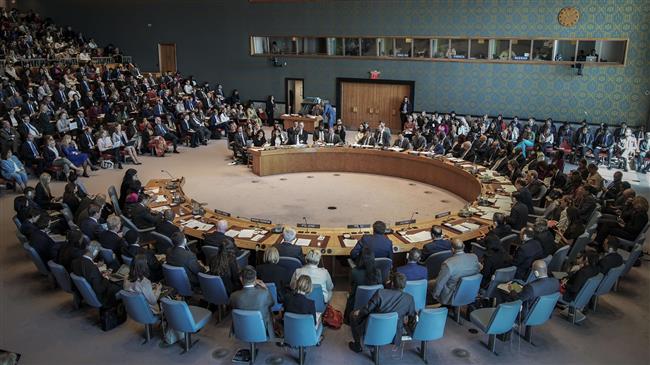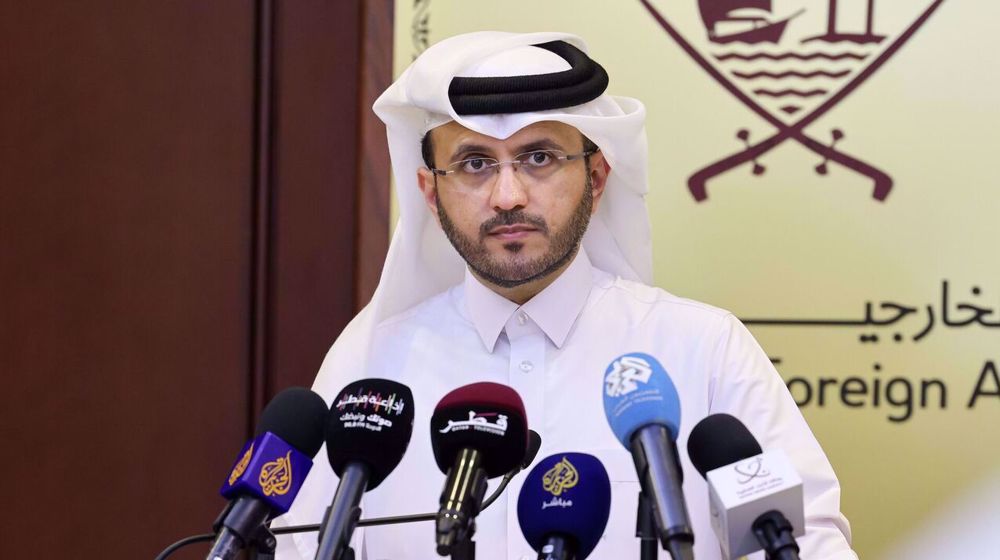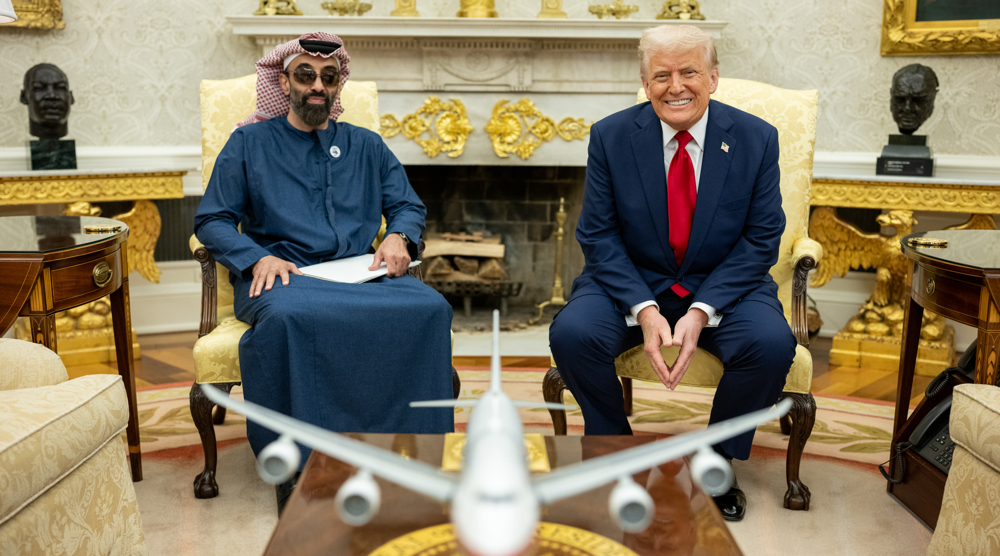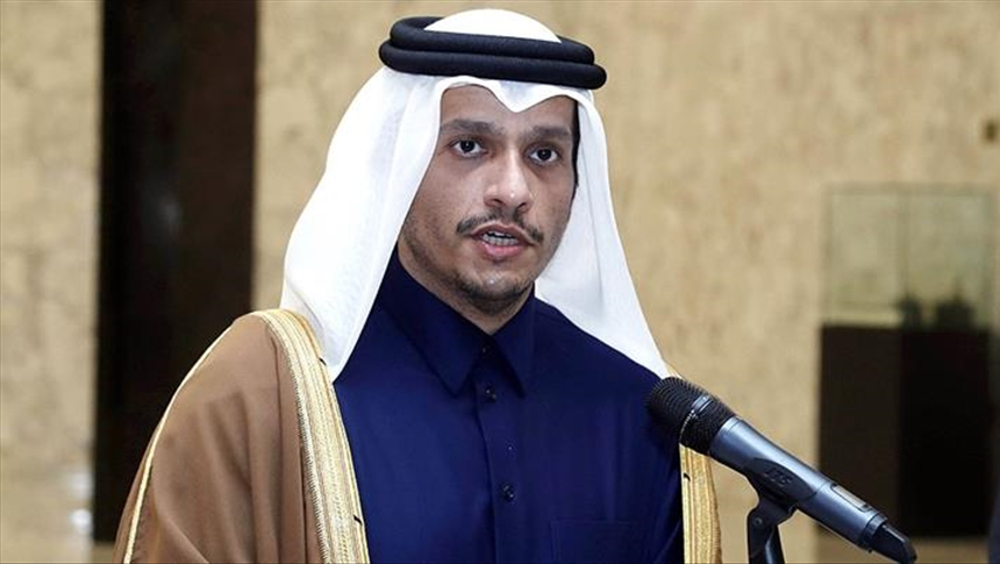UNSC assigns no blame despite UAE's claims on oil tanker attacks
A UN Security Council's meeting on the recent vessel attacks near Fujairah has yielded no result, as member states refused to blame any party despite the UAE's claim that a "state actor" was behind the incident.
The United Arab Emirates told council members on Thursday that attacks on four tankers off its coast on May 12 bore the hallmarks of a “sophisticated and coordinated operation,” but it did not name any particular country.
In a document on the briefing to Security Council members, the UAE, joined by Norway and Saudi Arabia, did not say who they believed was behind the attacks and did not mention Iran, which has been accused by the United States of being directly responsible.
The three countries said the attacks required expert navigation of fast boats and trained divers who likely placed limpet mines with a high degree of precision on the vessels under the waterline.
"While investigations are still ongoing, these facts are strong indications that the four attacks were part of a sophisticated and coordinated operation carried out by an actor with significant operational capacity, most likely a state actor," the document said.
"We believe the responsibility for this attack lies on the shoulders of Iran," Saudi Arabia's UN ambassador, Abdallah al-Mouallimi, told reporters after the briefing.
However, Russian Deputy Ambassador Vladimir Safronkov told reporters that no evidence was presented in the briefing linking Iran to the attacks.
"We shouldn't jump to conclusions. This investigation will be continued," he said.
After initial reports of the Fujairah explosions emerged on May 12, the UAE denied there had been any incident but later on confirmed that four commercial vessels had been targeted by “sabotage operations” near its territorial waters.
Saudi Arabia announced a day later that two of its vessels had sustained damage in the mysterious attacks.
Israeli reports then stated that Mossad had collected material at the site of the alleged sabotage, and passed the alleged evidence to US intelligence agencies, prompting some American officials to pin the attacks on Iran.
Iranian Foreign Minister Mohammad Javad Zarif dismissed the "fabricated" claim and described the attacks as "false flag" operations aimed at accusing Iran.
In a tweet on Wednesday, Zarif said Mossad was simply peddling an anti-Iranian scenario made up by the B-Team -- referring to US National Security Adviser John Bolton, Israeli Prime Minister Benjamin Netanyahu, Saudi Crown Prince Mohammed bin Salman and Abu Dhabi Crown Prince Mohammed bin Zayed Al Nahyan.
"The #B_Team's boy who cries wolf is crying once again: this time Mossad is fabricating intelligence about Iran's involvement in sabotage in Fujairah. I've warned of “accidents” and false flags—we know what happens when you believe their lies. We've been here before, haven't we?"
The #B_Team's boy who cries wolf is crying once again: this time Mossad is fabricating intelligence about Iran's involvement in sabotage in Fujairah. I've warned of “accidents” and false flags—we know what happens when you believe their lies. We've been here before, haven't we?
— Javad Zarif (@JZarif) June 5, 2019
Bolton said in late May that the May 12 incident had been caused by Iranian naval mines, without providing any evidence to substantiate his claim.
Pompeo repeated the claim last Thursday, telling reporters before leaving for a trip to Europe that Tehran carried out the attacks "to raise the price of crude oil throughout the world."
Tensions reached a new peak between Iran and the US after the Trump administration decided to send an aircraft carrier, B-52 bombers and 1,500 troops to the Persian Gulf after the blasts, citing what it called an imminent "threat" from Iran.
Iran has slammed the attacks as “lamentable” and “worrying.”
Zarif said in the aftermath of the attacks that he had already warned of such suspicious “accidents” because of Washington’s renewed warmongering policies promoted by Bolton and other US hawks.
VIDEO | Israel approves land registration in West Bank’s Area C, raising Palestinian annexation fears
VIDEO | Press TV's news headlines
Iran: World bears responsibility to counter Israel’s rights violations in West Asia
Saudi Arabia condemns Israel’s seizure of West Bank land, warns of regional instability
Israeli producer of anti-Iran propaganda series ‘Tehran’ dies in Greece
Diplomacy and deterrence: Iran focused on reaching nuclear deal – without compromise
British Museum faces backlash for eliminating references to ‘Palestine' from displays
Global outage hits X users: Thousands report access issues











 This makes it easy to access the Press TV website
This makes it easy to access the Press TV website